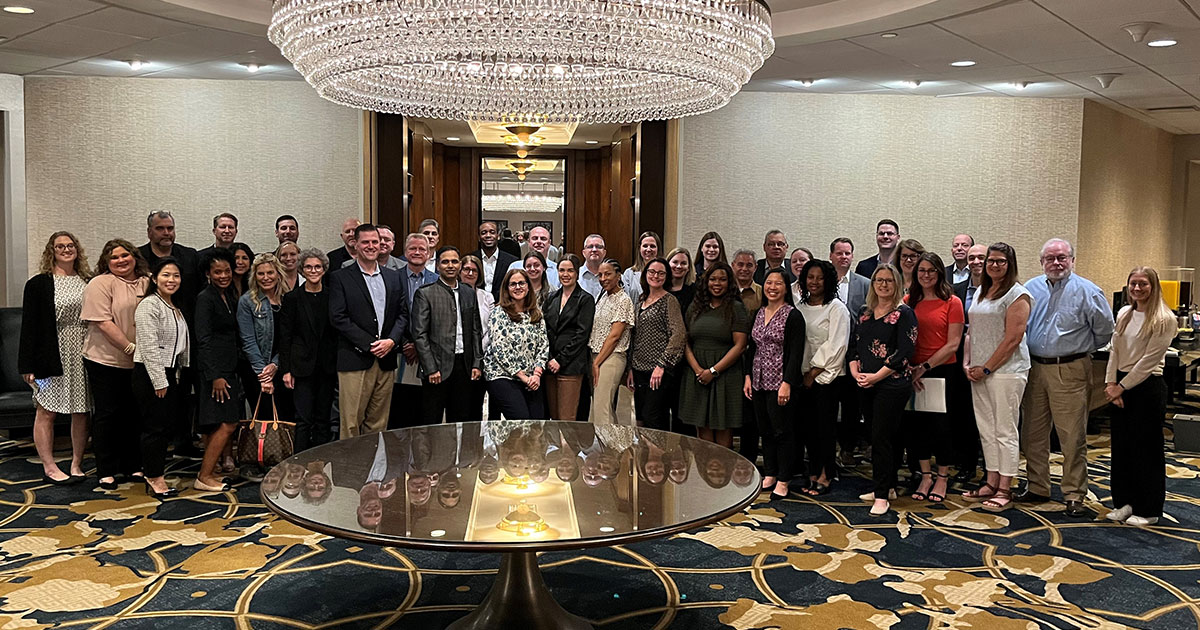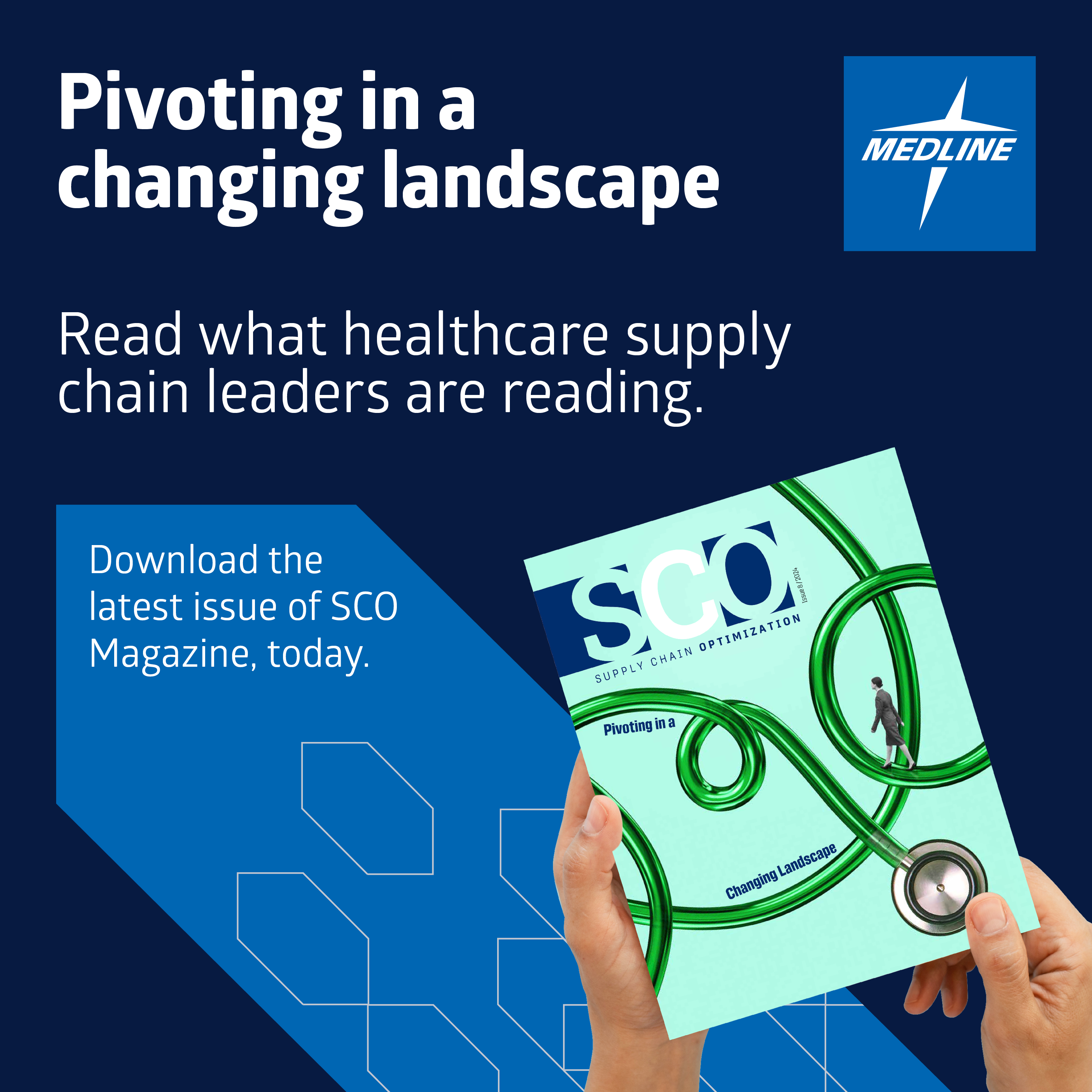Securing the future: APIC promotes diverse career paths for infection preventionists

By Medline Newsroom Staff | May 16, 2023
Over the next 10 years, an estimated 40% of infection preventionists will reach retirement age, potentially jeopardizing this vital role throughout the continuum of healthcare.
While most IPs have a nursing background, “they don’t have a dedicated career pathway like other professions,” said Association for Professionals in Infection Control and Epidemiology (APIC) CEO Devin Jopp, EdD, MS. “We’re trying to fix this as quickly as possible, but it’s a challenge to fill the need fast enough and avoid running low on IPs nationally.”
Creating and maintaining multifaceted career pathways for infection preventionists are top goals for APIC, said Jopp during an interview at the recent 2023 APIC Strategic Partner Leadership Forum in New Orleans. Medline was among 40 supplier representatives attending the two-day event, which included a tour of the new state-of-the-art University Hospital and a panel discussion with local, frontline infection preventionists from across the continuum of healthcare.
“Having organizations like Medline at the table is tremendously important. We’re stronger together tackling these critical topics.”

Devin Jopp
APIC CEO
An IP’s role “is to serve as the first line of defense in preventing infectious diseases and connect all of the critical functions together in organizations to build systems of infection prevention and control that work together,” said Jopp. “They’re developing the policies and procedures, monitoring compliance and reporting surveillance data.”
Preventing an IP shortage
The route to becoming an infection preventionist is varied. Many IPs are nurses, and others have master’s degrees in public health, microbiology backgrounds, or started their careers in other healthcare roles.
“We’re trying to build this IP academic pathway which will also involve having universities at the table,” said Jopp. “We’re also working with the Department of Labor on trying to get a national apprenticeship program approved, which I’m really excited about. Ultimately, we need to have many routes to becoming an IP, but we have to have them clearly defined, and lay out the career path into a curricula so that IP training can start at the undergraduate, or even the associate degree level, with an apprenticeship or internship component.
“At APIC, we believe organizations should fully embrace the multi-disciplinary approach as each discipline brings a unique skill set to the role of being an IP,” said Jopp.
The challenge is especially prevalent in long-term care, where the federal government has mandated that every facility have a “designated” infection preventionist, but without support for training and recruitment. The Certification Board for Infection Control and Epidemiology recently created an infection prevention certification, LTC-CIP, specifically for long-term care IPs.
Supporting long-term care and ‘oner’ IPs
“In long-term care, we understand that these facilities are woefully under resourced, and we do urge legislative and policy leaders to take action to support these organizations,” said Jopp. “APIC believes that we need to protect our loved ones from infection in these organizations and has been advocating to have IPs be fully dedicated to the role, rather than simply designated. At the same time, federal and state congressional leaders need to make sure there’s support for those facilities to help them hire and train those professionals.”
40%
of infection preventionists plan to retire over the next 10 years
“Designating rather than dedicating is an important distinction, as having someone do the role that isn’t allocated for the proper time doesn’t work,” said Jopp. “We have seen the consequences of not having adequate IPC (infection prevention control) infrastructure and staffing and it proved deadly,” said Jopp, noting the more than 200,000 fatalities in long-term care facilities during the pandemic.
“A lot of this (was due) to an inadequate infection control structure, and a lack of dedicated staffing.”
In addition to creating career pathways, there also needs to be broad “appreciation for what IPs do” – including buy-in and support at the C-suite level – and resources to support the role and to prevent burnout, said Jopp. This is especially important among what the industry calls “oners” – the lone professionals with the job of developing, implementing and monitoring infection prevention within their facility.
“They’re an army of one,” said Jopp. “For those individuals, their (organizations) have to make sure that they’re effectively cross training and that they have additional strategies in place to support their well-being, as they can’t be at the job 24 hours a day, 7 days a week for a full year.”
Tackling HAIs
Jopp said APIC also is focused on helping to lower the rate of healthcare-associated infections (HAIs), which have remained high since the pandemic. “How do we really get HAIs back to pre-COVID-19 levels, and then even improve on that? Much of our focus has been identifying best practices – who is doing this well, and hopefully moving this work forward through quality improvement projects.”
He also suggested implementing “learning collaboratives,” so that organizations can share what’s working with colleagues at other healthcare systems.
In addition, APIC is looking at potential protocols around the emerging “hospital-at-home” care model that many healthcare systems are either considering or piloting.
“What does infection prevention and control look like when you’re now caring for patients at home?” said Jopp. “It’s a completely different landscape and one in which we have to make sure we have adequate IPC infrastructure and staffing in place to keep patients safe.”
The value of strategic partners
During the Forum, Jopp welcomed and discussed the value of bringing strategic partners – like Medline, an APIC strategic partner – together to discuss these and other infection prevention issues.
“Aligning messaging to amplify and support each other is really important,” said Jopp. “Medline does such a great job at this. Knowledge transfer between our partners, APIC and its members is critical. Having organizations like Medline at the table is tremendously important. We’re stronger together tackling these critical topics.
“At the end of the day, IPs can’t be IPs without having all the necessary resources and innovation surrounding them. That’s an important part of their success too.”
Read related Medline articles:
- The infection preventionist evolution: 10 ways to lead the way
- Encouraging, supporting and elevating the role of infection preventionists
Learn more about how Medline helps make healthcare run better
Medline Newsroom Staff
Medline Newsroom Staff
Medline's newsroom staff researches and reports on the latest news and trends in healthcare.
